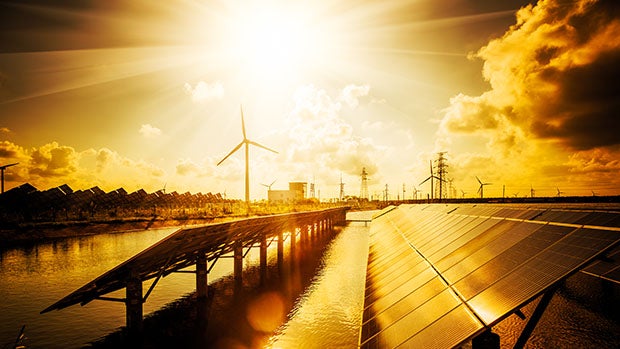This week, U.S. Climate Envoy John Kerry conducted a series of meetings with India’s Minister of Environment, Prakash Javadekar, and other members of Prime Minister Modi’s government, aimed at bolstering climate ambition and bilateral climate and energy cooperation between the two countries. These meetings are part of the lead-up to U.S. President Joe Biden’s climate-focused Virtual Leader’s Summit on April 22-23 and part of the new Administration’s broader strategy to advance climate ambition ahead of COP-26 in Glasgow.
Last month, members from the U.S. and Indian Delegations of the Track II Dialogue on Climate Change and Clean Energy convened, for the tenth year, to coordinate on key issues related to India’s and the U.S.’s bilateral climate and energy relationship, including how the two countries might work together to support climate finance, subnational cooperation, and efforts around water and climate resilience. Ahead of the Dialogue, both delegations collaborated on a Joint Statement, issuing recommendations for fast-tracking a renewed U.S.-India Enhanced Platform for Partnership. Read the full list here.
Leaders from both administrations might look to the Joint Statement, as well the Climate Finance paper produced for the Dialogue, to further inform their conversations. Conversations this week between Secretary Kerry and Prime Minister Modi’s government have already touched on many of the Track II recommendations, including climate finance, joint research, and resilience.
It is the hope that with the two governments enhancing their Nationally Determined Contributions to align with Paris targets, 2030, rather than 2050, will be positioned as the crucial decade for climate action. Within this decade of action, there seem to be opportunities to collaborate on green hydrogen research and development, water, among other priorities that seem to have already begun to be put on the table.
Last month, the Track II group specifically urged for the prioritization of climate financing and the mobilization of private capital for climate financing and a green transition in India, as this is one of the singular most important issues with respect to climate and one of the most significant areas where leader-level support can be instrumental to driving progress. This seems to have been a topic of considerable conversation this past week between Kerry and Javadekar.
Energy has been instrumental in cementing the bilateral partnership between India and the U.S., with climate and clean energy becoming pillars of the Obama-Modi partnership and India and the U.S. coming together to sign onto Paris ranking as a top achievement of the last two decades in their bilateral relationship. The two countries seem to be on track to return to rebuilding this momentum on the Track I level.
This week’s discussions in New Delhi and the Track II Dialogue last month build on a strong record of cooperation between the two countries. The Track II Dialogue will continue to support Track I heading into the upcoming Virtual Climate Leaders’ Summit, G20 forum and COP26, supporting the climate ambitions of both nations because in the words of Kerry, “We must raise ambition together, or we will fail together.”


